Mastering Neurodivergent Social Skills: Insights from the Free Aspie Quiz
September 15, 2025 | By Leo Sinclair
Feeling like you missed the memo on social rules everyone else seems to know? Navigating conversations, parties, and friendships can sometimes feel like trying to solve a complex puzzle without the instructions. This is a common experience for many neurodivergent individuals. This guide is here to offer a supportive hand, providing practical strategies for developing neurodivergent social skills, understanding social cues, managing anxiety, and building the genuine connections you deserve. What if the key to unlocking social confidence lies in first understanding your own unique mind?
For many, the journey to better social understanding begins with self-exploration. A great first step can be to explore your own traits through a resource like the free Aspie Quiz. It offers a private, accessible way to gain preliminary insights that can empower your path forward.
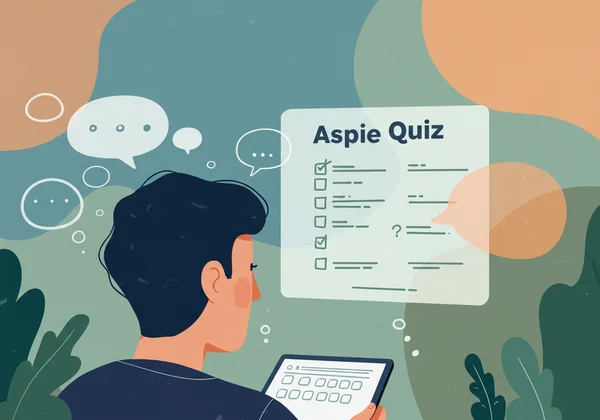
Understanding Neurodivergent Social Communication
First, it’s crucial to reframe the narrative. Neurodivergent social communication isn't "wrong" or "deficient"; it's simply different. Neurotypical communication often relies heavily on unspoken rules, subtext, and subtle nonverbal cues. In contrast, neurodivergent communication styles, particularly those associated with the autism spectrum, often prioritize clarity, logic, and directness. Recognizing this difference is the first step toward bridging the gap and reducing misunderstandings.
This difference in processing is not a flaw. It’s a variation in cognitive wiring. While a neurotypical brain might automatically filter social information through an emotional or intuitive lens, a neurodivergent brain might process it more systematically, like data. This can be a significant strength, leading to honest interactions and deep, focused conversations. The challenge arises when these two distinct operating systems try to interact without a mutual understanding of their programming.
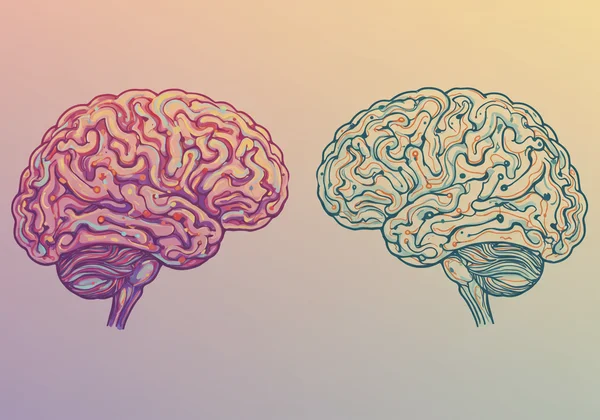
The Nuances of Neurodivergent Social Interaction
To truly grasp the concept, let's explore some common social interaction patterns. Many neurodivergent people prefer direct and literal communication. Small talk can feel pointless, while deep dives into special interests are energizing and form the basis of strong bonds. A question is seen as a request for information, and the most accurate answer is provided, which can sometimes be more detailed than a neurotypical person expects.
Eye contact is another well-known area of difference. For many on the autism spectrum, forcing eye contact can be intensely uncomfortable or distracting, making it difficult to process what the other person is saying. This isn't a sign of dishonesty or disinterest; it's often a way to manage sensory input and focus on the conversation. Understanding these nuances is vital for both neurodivergent individuals and those they interact with, fostering an environment of acceptance rather than judgment. You can explore your traits to see how they align with these patterns.
Common Misunderstandings and How They Arise
Many common misunderstandings stem from neurotypical interpretations of neurodivergent behaviors. For instance, a direct communication style can be misread as rude or blunt. A person’s need to take a break from a loud party might be seen as antisocial, when it’s actually a necessary strategy for managing sensory overload.
Similarly, sharing detailed information about a passionate interest (sometimes called info-dumping) is an expression of joy and a desire to connect. However, it can be misinterpreted as monopolizing the conversation. These recurring misinterpretations can lead to social anxiety and a feeling of being perpetually out of sync. By identifying these potential friction points, we can begin to develop strategies to communicate our intentions more clearly and advocate for our needs.
Practical Strategies for Navigating Social Interactions
Improving your comfort and effectiveness in social situations isn't about changing who you are. It's about adding new tools to your toolkit. These communication strategies ASD individuals and other neurodivergent people find helpful are designed to reduce anxiety and build confidence, allowing your authentic self to shine through.
Start by being kind to yourself. Learning social skills is like learning any new language; it takes time, practice, and patience. There will be mistakes along the way, and that's perfectly okay. The goal is progress, not perfection. Finding a safe space to practice, perhaps with a trusted friend or in a supportive group, can make a world of difference.
Tools for Interpreting Nonverbal Cues and Body Language
Trying to decode all nonverbal cues and body language at once can be overwhelming. Instead, focus on patterns and context. You can use your analytical strengths to your advantage.
-
Focus on One Channel: Instead of trying to read facial expressions, body posture, and tone of voice simultaneously, pick one to focus on. Tone of voice is often a reliable indicator of emotion.
-
Observe and Learn: Watch interactions in movies or TV shows. Pay attention to how characters react in different situations. This provides a low-stakes environment to observe social dynamics.
-
Ask for Clarity: There is no shame in asking for clarification. Saying something like, "I'm not always great at reading signals. Are you happy with this plan?" can prevent misunderstandings and shows you care about the other person's feelings.
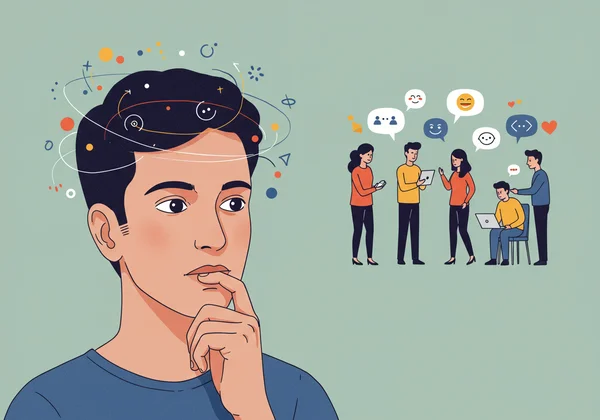
Verbal Communication Tips for Clarity and Connection
Your words are a powerful tool. Honing your verbal communication skills can help ensure your message is received as intended. The goal is to bridge the gap between your direct style and the often-indirect style of neurotypical conversation.
- Use "I" Statements: Frame your thoughts from your perspective. For example, instead of saying "That's a bad idea," try "I see a potential problem with that approach. Could we consider this?"
- Practice Conversational Reciprocity: A conversation is a two-way street. After sharing something about your interests, remember to ask the other person a related question about theirs. A simple "What about you?" can go a long way.
- Create Mental Scripts: For common, anxiety-inducing situations like introductions or ordering food, having a pre-planned script can reduce mental load and increase confidence. Over time, these scripts will become more natural.
Managing Social Anxiety and Overwhelm in Gatherings
Social anxiety and sensory overload are significant hurdles. Proactive management is key to preventing burnout and ensuring you can enjoy social events on your own terms.
-
Have an Exit Strategy: Knowing you can leave when you need to is incredibly empowering. Decide on a time limit beforehand or arrange a signal with a friend.
-
Find a Quiet Space: Scope out a bathroom or a quiet corner where you can retreat for a few minutes to decompress if you feel overwhelmed.
-
Carry a Comfort Item: A small, discreet fidget tool or a piece of fabric with a comforting texture can help regulate your nervous system in stressful moments. Taking an online asperger's test can sometimes provide insights into why certain situations are so draining.
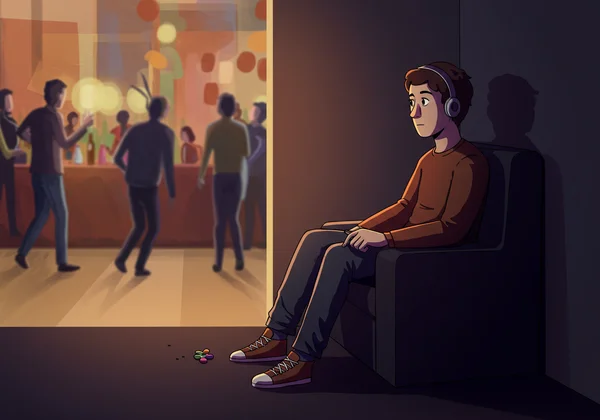
Building Meaningful Neurodivergent Friendships and Connections
Ultimately, the goal of improving social skills is to form meaningful connections with others who appreciate you for who you are. The good news is that building neurodivergent friendships often leads to some of the most loyal, authentic, and rewarding relationships possible.
These friendships often thrive on shared passions and deep, honest communication, bypassing the superficial layers that can make other interactions feel draining. Finding people who speak your language, both literally and figuratively, is a transformative experience. It validates your identity and creates a sense of belonging that is essential for well-being.
Finding Your Tribe: Where to Connect with Others
Your neurodivergent community is out there waiting for you. The key is to look in places where shared interests are the main focus, as this provides a natural foundation for connection.
- Online Forums: Websites like Reddit (with subreddits like r/autism or r/aspergers) and Wrong Planet are excellent places to connect with other neurodivergent people, share experiences, and ask for advice.
- Hobby and Interest Groups: Join a local club or an online group dedicated to one of your special interests, whether it's coding, board games, birdwatching, or anything else. You'll instantly have something in common to talk about.
- Structured Events: Look for events with a clear focus, like a lecture, a workshop, or a movie screening. These provide a shared experience with less pressure for unstructured small talk.
Nurturing Authentic Relationships with Shared Understanding
Once you've made a connection, nurturing it requires authenticity and clear communication. The beauty of neurodivergent friendships is that you can often drop the social "mask" and just be yourself.
Building authentic relationships means being open about your needs and boundaries. It’s okay to tell a friend, "I'd love to hang out, but I don't have the social energy for a loud bar. Could we go for a walk instead?" Friends who understand and respect your needs are the ones worth keeping. These relationships are built on a foundation of mutual support and a deep appreciation for each other's unique minds. Knowing yourself is the first step, and tools like the Aspie Quiz online can help you articulate your own needs.
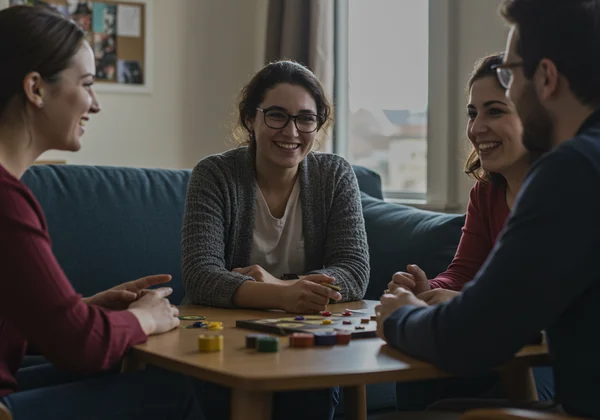
Empowering Your Social Journey: Next Steps
Navigating the social world as a neurodivergent person has its challenges, but it is also filled with opportunities for deep, authentic connection. By understanding your own communication style, equipping yourself with practical strategies, and seeking out your community, you can build a rich and rewarding social life that honors who you are. Remember, this is a journey of self-discovery, not self-correction.
Your unique perspective is a gift. The world needs your honesty, your passion, and your analytical mind. If you’re ready to take the next step in understanding yourself, we invite you to take the free aspie quiz. It can provide valuable insights that illuminate your path toward more confident and fulfilling social connections.
Frequently Asked Questions About Neurodivergent Social Life & Self-Exploration
Is the Aspie Quiz a diagnostic tool for social challenges?
No, it is very important to understand that the Aspie Quiz is not a diagnostic tool. It is a preliminary self-screening resource designed to help you explore your own traits and tendencies related to the autism spectrum. The results can provide personal insights and a starting point for self-reflection, but they cannot and should not replace a formal evaluation by a qualified healthcare professional.
How can the Aspie Quiz provide insights into my social communication style?
The quiz includes a wide range of questions that touch upon social preferences, communication patterns, sensory experiences, and information processing. By answering honestly, you can see how your responses align with common neurodivergent and neurotypical profiles. The resulting report can help you identify specific areas—such as a preference for literal communication or challenges with interpreting subtext—that define your unique social style. You can even opt for an AI autism report for more detailed, personalized insights.
Where can I find support communities for neurodivergent social experiences?
There are many fantastic online and offline communities. Online, platforms like Reddit (r/aspergers, r/autism, r/neurodiversity), Wrong Planet forums, and various Facebook groups offer spaces to share experiences and find solidarity. Offline, searching on sites like Meetup.com for groups related to your special interests can connect you with like-minded people. Additionally, some local autism advocacy organizations run social groups or events for adults.